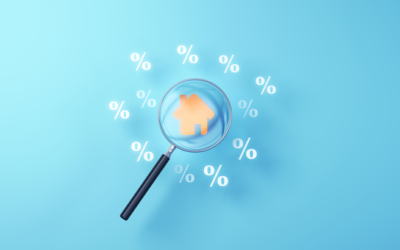
“Working remotely is definitely changing how Americans spend their time at home, and also how they use their available square footage.”
With more companies figuring out how to efficiently and effectively enable their employees to work remotely (and for longer than most of us initially expected), homeowners throughout the country are re-evaluating their needs. Do I still need to live close to my company’s office building? Do I need a larger home with more office space? Would making a move to the suburbs make more sense for my family? All of these questions are on the table for many Americans as we ride the wave of the current health crisis and consider evolving homeownership needs.
According to George Ratiu, Senior Economist for realtor.com:
“The ability to work remotely is expanding home shoppers’ geographic options and driving their motivation to buy, even if it means a longer commute, at least in the short term…Although it’s too early to tell what long-term impact the COVID-era of remote work will have on housing, it’s clear that the pandemic is shaping how people live and work under the same roof.”
Working remotely is definitely changing how Americans spend their time at home, and also how they use their available square footage. Homeowners aren’t just looking for a room for a home office, either. The desire to have a home gym, an updated kitchen, and more space in general – indoor and outdoor – are all key factors motivating some buyers to change their home search parameters.
A recent realtor.com-HarrisX survey indicates:
“In a June poll of 2,000 potential home shoppers who indicated plans to make a purchase in the next year, 63% of those currently working from home stated their potential purchase was a result of their ability to work remotely, while nearly 40% [of] that number expected to purchase a home within four to six months and 13% said changes related to pandemic fueled their interest in buying a new home.
Clearly, Americans are thinking differently about homeownership today, and through a new lens. The National Association of Home Builders (NAHB) notes:
“New single-family home sales jumped in June, as housing demand was supported by low interest rates, a renewed consumer focus on the importance of housing, and rising demand in lower-density markets like suburbs and exurbs.”
Through these challenging times, you may have found your home becoming your office, your children’s classroom, your workout facility, and your family’s safe haven. This has quickly shifted what home truly means to many American families. More than ever, having a place to focus on professional productivity while many competing priorities (and distractions!) are knocking on your door is challenging homeowners to get creative, use space wisely, and ultimately find a place where all of these essential needs can realistically be met. In many cases, a new home is the best option.
In today’s real estate market, making a move while mortgage rates are hovering at historic lows may enable you to purchase more home for your money, just when you and your family need it most.
Bottom Line
If your personal and professional needs have changed and you’re ready to accommodate all of your family’s competing priorities, let’s connect today. Making a move into a larger home may be exactly what you need to set your family up for optimal long-term success.
To view original article, visit Keeping Current Matters.
Why Today’s Seller’s Market Is Good for Your Bottom Line
The market is still working in favor of sellers. If you house is ready and priced competitively, it should get a lot of attention.
What Mortgage Rate Do You Need To Move?
While mortgage rates are nearly impossible to forecast, the optimism from the experts should give you insight into what’s ahead.
Finding Your Perfect Home in a Fixer Upper
Your agent can also offer advice on which upgrades and renovations will set you up to get the greatest return on your investment.
The Benefits of Downsizing When You Retire
When you downsize your house, you often end up downsizing the bills that come with it, like energy costs, and maintenance requirements.
Why There Won’t Be a Recession That Tanks the Housing Market
The fundamentals of the economy, despite some hiccups, are doing pretty good.
What To Know About Credit Scores Before Buying a Home
Working with a trusted lender is the best way to get more information on how your credit score could factor into your home loan.





